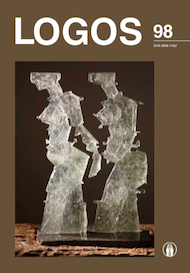F. NIETZSCHE IR RELIATYVISTINES MENO FILOSOFIJOS KONTŪRAI
NIETZSCHE AND THE OUTLINE OF A RELATIVIST PHILOSOPHY OF ART
Author(s): Antanas AndrijauskasSubject(s): Metaphysics, Aesthetics, Existentialism, Ontology
Published by: Visuomeninė organizacija »LOGOS«
Keywords: Nietzsche; Schopenhauer; non-classical philosophy of art; philosophy of life; beauty; art; aesthetics;
Summary/Abstract: The paper attempts to reveal the originality of Friedrich Nietzsche’s solution to philosophical problems. Using Schopenhauer’s metaphysics of irrational will power, Nietzsche formulates a new non–classical relativist philosophy of art. Nietzsche gives it a solid empirical basis by associating it with human existence. Nietzsche’s “philosophy of life” is an attempt to change the very essence of predominating regulations in classical metaphysical Western philosophy. Also it avoids the abstract observative nature of rational philosophy and its irreverent attitude towards the problems of human existence. From here follows a fierce criticism of rational thinking and a huge tendency of ontologisation and aesthetisation of philosophical themes which emphasizes the means of artistic expression. When treating the problems of individual human existence, the followers of non-classical philosophy of art relied on an understanding of being as non-substantial (personality is not something given but a totality of constantly emerging potentialities) and at the same time subjectivized their ontological problems. Thus, the strengthening of subjectivist tendencies in post-Hegelian philosophy of art reached the culmination of its development.
Journal: LOGOS - A Journal of Religion, Philosophy, Comparative Cultural Studies and Art
- Issue Year: 2019
- Issue No: 98
- Page Range: 13-22
- Page Count: 10
- Language: English

